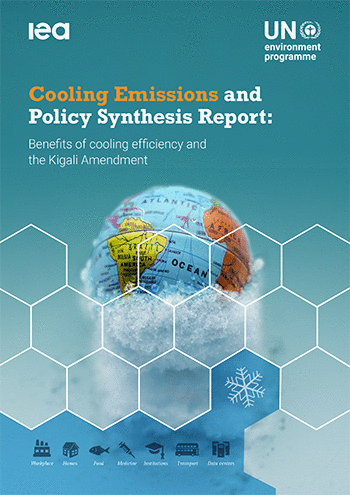A .gov website belongs to an official government organization in the United States.
A lock () or https:// means you've safely connected to the .gov website. Share sensitive information only on official, secure websites.
17 July 2020

The United Nations Environment Programme (UNEP) and International Energy Agency (IEA) released the Cooling Emissions and Policy Synthesis Report: Benefits of cooling efficiency and the Kigali Amendment today. CSL Director David Fahey, co-chair of the Montreal Protocol Scientific Assessment Panel (SAP), contributed to the report.
Almost one-third of the world's population faces dangerous temperatures for more than 20 days a year, while heatwaves cause 12,000 deaths annually. Staying cool is a health and productivity issue. We need to provide equitable access to cooling to protect people against extreme heat, keep food fresh, vaccines stable, and so much more. But unless we change our approach the growing demand for cooling will contribute significantly to climate change, partly through emissions of HFCs and other refrigerants, and partly through the CO2 and black carbon emissions from the mostly fossil fuel-based energy sources currently powering air conditioners and other cooling equipment. Right now, as the climate warms the growing demand for cooling contributes to more warming, but different paths exist. This synthesis report explores the climate and economic benefits of implementing the Kigali Amendment while at the same time improving the efficiency of cooling, for people and the planet.